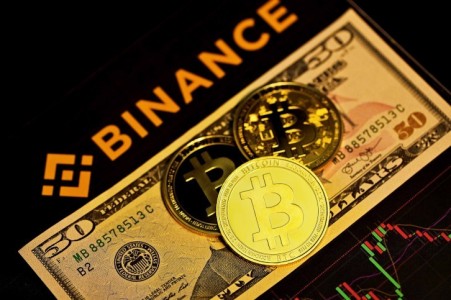

Binance, currently the largest cryptocurrency exchange in operation, reached agreements with several U.S. authorities starting on Nov. 22 that will allow it to end ongoing investigations and continue to operate outside of the United States.
DOJ Imposed $4.3 Billion Fine
The Department of Justice (DOJ) said in an announcement that Binance failed to comply with various laws and did not register as a money transmitting business.
The agency said that Binance and its CEO Changpeng Zhao allowed users to perform transactions to sanctioned individuals and sanctioned regions. It added that Binance did not block U.S. users in 2019, as it said it would, but instead focused on helping high-profile VIP users to bypass geographic restrictions and trade crypto.
The DOJ otherwise said that Binance had insufficient KYC/AML restrictions and required users to input very little information to use its exchange.
The DOJ’s fines amount to approximately $4.3 billion, though $1.8 billion of this will be put toward fines that other agencies have imposed on Binance.
Treasury and CFTC Also Charged Binance
Elsewhere, the U.S. Treasury and two of its divisions — OFAC and FinCEN — said that Binance failed to report and block crypto illegal transactions related to money laundering, terrorism, ransomware, and child abuse.
The Treasury’s divisions will impose $3.4 billion and $968 million in fines. As noted above, those fines will be partially covered by Binance’s payments to the DOJ. The Treasury divisions will also impose monitoring and compliance requirements on Binance.
The Commodity and Futures Trade Commission, meanwhile, has said that Binance and its CEO knowingly disregarded provisions of the Commodity Exchange Act (CEA) and profited from operating an illegal derivatives asset exchange. The proposed CFTC order requires Binance to pay $2.85 billion, once again partially covered by the DOJ fine. The CFTC will also impose certain restrictions and remedies on Binance.
Though Binance will be allowed to continue operating, FinCEN settlements require it to exit the United States. However, the company nominally stopped serving U.S. customers in 2019, meaning measure that this merely enforces existing policy.
The U.S. Securities and Exchange Commission (SEC) did not settle with Binance. The SEC’s ongoing case additionally concerns the company’s American division, Binance.US, which was not mentioned in any of the settlements at present.
Binance’s CEO Has Stepped Down
Binance’s former CEO, Changpeng Zhao, has resigned from his position. He will be replaced by the company’s former global head of regional markets, Richard Teng, who also has experience in traditional markets.
Zhao said in a statement on X that he will remain involved as a consultant and shareholder of the company. However, separate reports from The New York Times suggest that Zhao is required to stay uninvolved with Binance until three years after a monitor is appointed to the company.
Zhao faces further prosecution. He faces up to 18 months in prison under recommended sentencing guidelines, but up to ten years in prison as a maximum sentence. He will be sentenced in February 2024. Zhao was released on bail for $175 million on Nov. 22; prosecutors now aim to prevent him from exiting the U.S.
Zhao is also required to pay certain charges and fines. The CFTC settlement requires Zhao to pay a $150 million civil monetary penalty. He has also reportedly agreed to pay a $50 million fine as part of his plea deal with prosecutors.
Binance Still in High Demand
Binance continues to experience high cryptocurrency trading volumes. The company saw at least $7.2 billion in 24-hour trading volume on Nov. 22. Coindesk also reported that the exchange saw $1 billion in withdrawals in 24 hours on Nov. 22, leaving the exchange with almost $67 billion of assets. That suggests that Binance is unlikely to fail to meet user withdrawals, unlike in the collapse of the competing FTX in 2022.
Binance has also published a statement on its website admitting past wrongdoing around compliance. It emphasized that the settlements did not include claims of misappropriation of user funds or market manipulation. Rather, it said that the claims concern historical criminal compliance and sanctions violations.
Though Binance appears to be in a strong position, its associated cryptocurrency has weakened. The Binance-linked BNB token is down 4.0% over the one week period ending Nov. 23. Bitcoin, by contrast, is up 2.9% over that period.




